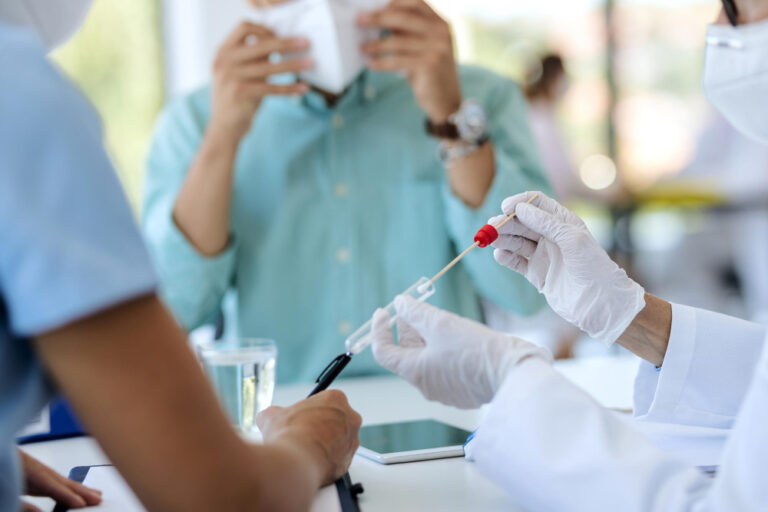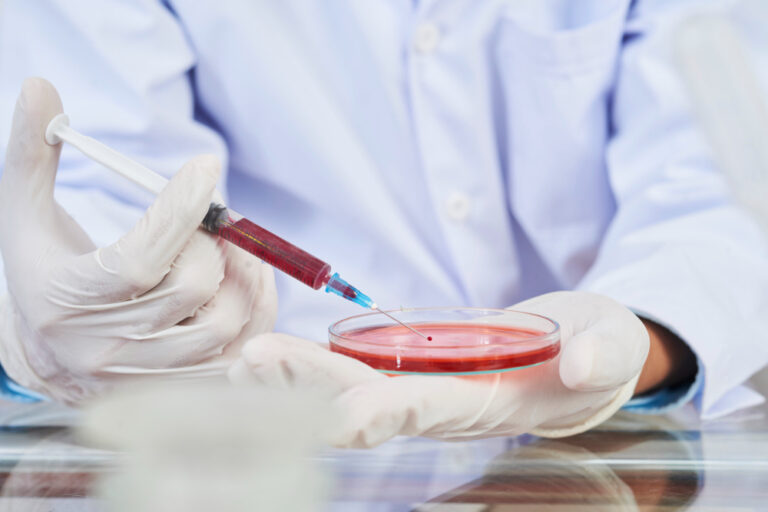The Role of a Hematologist in Managing Blood Health in Tampa, FL
We don’t really think about our blood much, right? It’s just… there, flowing through our body, doing its thing. But the truth is our blood does a lot. It carries oxygen, fights off germs, and even helps us heal when we get hurt. Basically, it keeps us alive and kicking.
Now, when something’s off with your blood, maybe you’re feeling tired, dizzy, or bruising too easily. That’s where a hematologist in Tampa, FL steps in. They’re the experts who figure out what’s going on inside your blood and help you get back on track.
Let’s break it down a bit and see what these blood doctors actually do, what kinds of problems they treat, and why taking care of your blood is a big deal.
So, What Exactly Does a Hematologist Do?
Think of a hematologist as a “blood detective.” Their job is to study your blood, your bone marrow (where blood is made), and the organs that help make or store blood. They look for clues when something doesn’t seem right.
Their daily work might include:
- Checking your blood test results
- Treating people with anemia or clotting issues
- Helping patients who need blood transfusions
- Working with cancer doctors on blood cancers like leukemia
- Creating long-term care plans for chronic blood problems
In short — if it’s got anything to do with blood, they’re the ones handling it.
Why Blood Health Matters So Much
Your blood is like your body’s delivery service. It carries oxygen, food, and energy to every cell, and then takes away the trash (waste products). If that system slows down or goes wrong, you’ll definitely feel it.
When your blood’s not healthy, your whole body feels off. You might be tired all the time, dizzy, pale, or even short of breath. Sometimes, the signs are small, but they add up.
Healthy blood means:
- More energy
- Faster healing
- Stronger immune system
- Better focus and mood
So yeah, it’s worth paying attention to.
Common Blood Problems Hematologists Deal With
Let’s talk about the usual suspects — the blood problems hematologists see most often.
1. Anemia
Probably the most common one. When your blood doesn’t have enough red cells or iron, your body doesn’t get enough oxygen. You feel weak, tired, or just “blah.”
Usually, it’s treated with iron-rich foods, supplements, or medicines — pretty fixable once you know the cause.
2. Bleeding or Clotting Issues
Some people bleed too easily, others form clots that can be risky.
A hematologist figures out what’s causing the imbalance and gives you meds to fix it.
3. Leukemia
This one’s a type of blood cancer that starts in the bone marrow.
Treatment can include chemotherapy, special drugs, or sometimes a bone marrow transplant. It sounds scary, but modern treatments have come a long way.
4. Lymphoma
This affects the immune system. Basically, some white blood cells grow out of control.
Doctors use medicines, chemo, or radiation to help fight it off.
5. Sickle Cell Disease / Thalassemia
These are inherited — you’re born with them. The blood cells have a weird shape and don’t work like they should. People with these need regular care and sometimes blood transfusions.
6. Platelet Problems
Platelets are what help your blood clot. Too few, and you bruise or bleed easily. Too many, and you risk clots. A hematologist helps balance that out safely.
How They Figure Out What’s Wrong
When you go see a hematologist, don’t worry — they’re not guessing. They’ve got a bunch of tests to help them understand what’s going on.
They might do:
- A CBC (Complete Blood Count) to see your red, white, and platelet levels
- A Blood Smear Test to look at your blood cells under a microscope
- A Bone Marrow Test to see how your body’s making new blood
- Clotting Tests to check how fast (or slow) your blood clots
Once they know the problem, they’ll explain it in plain English and lay out your treatment options — no medical jargon, just real talk.
Getting Hematology Treatment in Tampa, FL
Here’s the good part — if you live around Tampa, you’ve got access to really good care. At Comprehensive Hematology Oncology, patients get safe and modern hematology treatment in Tampa, FL that’s built around them.
Treatment can include:
- Simple medicines or vitamin supplements
- Blood transfusions
- Chemotherapy (for blood cancers)
- Targeted therapy (goes straight for the bad cells)
- Stem cell or bone marrow transplants
Every person’s treatment plan is different — no copy-paste care here. The team looks at what you need and builds from there.
A Hematologist’s Role Doesn’t Stop at Treatment
Here’s something a lot of people don’t realize — a hematologist’s job isn’t just about giving medicine or doing tests. They walk with you through the whole process.
They’ll:
- Explain what’s going on in your body
- Help you understand test results
- Adjust treatment if something’s not working
- Check on your progress regularly
- Listen when you’re scared or unsure
Blood problems can be stressful. Having a calm, kind doctor who explains things simply makes a huge difference.

Working Together with Other Doctors
Hematologists don’t work alone — they’re part of a team. Depending on your condition, they might talk with:
- Oncologists, for blood cancers
- Cardiologists, if clotting affects your heart
- Surgeons, for surgery-related blood issues
- Family doctors, for overall care
That teamwork helps make sure you’re getting full, connected care — not random bits and pieces.
Keeping Your Blood Healthy — Every Day Stuff That Helps
You don’t have to be a doctor to look after your blood. A few simple habits go a long way:
- Eat more greens, beans, and iron-rich foods
- Drink plenty of water
- Move around — even a walk helps
- Don’t smoke or drink too much
- Get enough sleep
- Go for regular blood checkups
Small stuff, but it makes a big difference.
When Should You See a Hematologist?
Good question. A lot of people wait too long, thinking it’s “just tiredness.” But some signs shouldn’t be ignored.
See a hematologist if you notice:
- You’re always tired or weak
- You look pale or yellowish
- You bleed or bruise easily
- You’re short of breath a lot
- Your legs or arms swell
- You’re losing weight for no reason
- You get frequent fevers or infections
Basically, if something feels off and doesn’t go away — get checked.
Why Early Detection Is Everything
Catching a blood problem early can make all the difference. The earlier you find it, the easier it is to treat. That’s why regular checkups matter. Even a simple blood test can reveal a lot. A hematologist in Tampa, FL can explain what your results mean and what steps to take next. It’s about staying ahead, not waiting until it gets serious.
Living with a Blood Condition
Let’s be real, having a blood disorder sounds scary at first. But most people learn how to live with it just fine. With the right care and support, life goes on normally. Regular doctor visits, a balanced diet, staying positive, it all helps. Many patients keep working, traveling, and doing what they love. The key is following your doctor’s advice and taking care of yourself.
How Comprehensive Hematology Oncology Helps
At Comprehensive Hematology Oncology, care is personal. The team isn’t just focused on treating diseases, they’re focused on people.
Here’s what makes them different:
- They explain things simply, no medical mumbo jumbo
- They use the latest and safest treatments
- They check in often and adjust plans if needed
- They truly care about how you’re feeling, not just your test results
It’s healthcare with a human touch and that matters.
What to Expect During a Visit
If it’s your first visit, here’s how it usually goes:
- You’ll chat about your health and symptoms.
- Some blood tests will be done — nothing scary.
- The doctor will go over your results and what they mean.
- You’ll get a treatment plan that fits you.
- Follow-up visits help track your progress.
Simple, clear, and all about helping you feel better.
The Emotional Side of It All
Dealing with a health issue especially something like a blood disorder can be stressful. It’s normal to feel worried. Hematologists know this and try to make things easier. They’ll explain what’s happening, help manage side effects, and connect you with support if you need it. You’re not alone in this and that’s the most comforting part.
A Little Hope Goes a Long Way
Medicine has come a long way. Many blood problems that used to be serious can now be treated or even cured. With the right doctor, early testing, and good care, people recover and live full, healthy lives. So if something feels off, don’t wait. A simple test could give you peace of mind and a plan for better health.
Conclusion
Your blood keeps everything running, your heart, your brain, your energy, your life. Taking care of it is one of the smartest things you can do. Having a trusted hematologist in Tampa, FL by your side means you’ve got someone who truly understands what’s happening inside your body and knows exactly how to help.
At Comprehensive Hematology Oncology, the focus is on care that feels real, thoughtful, personal, and built around you. Whether it’s a small concern or something more serious, the right team makes all the difference. So, don’t ignore your blood health. Get checked, stay informed, and take care of yourself. Because when your blood’s healthy, the rest of you follows. For more details, contact us today!

